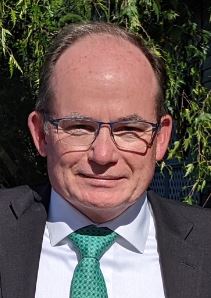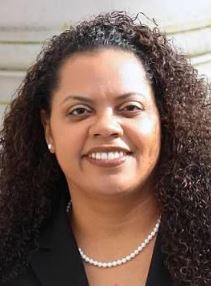LYNNWOOD, Wash., October 7, 2023—The Lynnwood Times’s publisher Mario Lotmore sat down with the candidates for Snohomish County Superior Court Position 17 in the upcoming general elections on November 7. The candidates were asked the same set of 12 questions aside from the last question on behalf of their opponent. Some of the answers to the questions asked are partial quotes and were shortened for brevity.
Biographies of each Superior Court candidate

Judge Patrick Moriarty was selected to fill a position on the Snohomish County Superior Court bench in June 2022 following the governor’s rigorous screening and appointment process.
Judge Moriarty has a record of more than 30 years of public service, with broad legal expertise as a public defender, prosecutor, private attorney, superior court commissioner, and now a judge.
Except for just two years in the 1990s, his law practice was focused in Snohomish County where he handled matters of criminal defense, juvenile representation, dependencies, drug court, personal injury, and many of the other legal issues that now come before him as a superior court judge.
For 17 years while practicing law, Judge Moriarty served regularly as a judge pro tem in the courts of Snohomish County followed by 4 years as a superior court commissioner where he presided over thousands of complex and important matters involving families and children. He is now the incumbent judge in this election.
🚨SUPERIOR COURT POS 17 CANDIDATE INTERVIEW🚨Patrick Moriarty sat down with the Lynnwood Times to answer questions focused on access to and engagement of the judicial system, bias and fairness, judicial reforms, case management, and one question on behalf of their opponent.… pic.twitter.com/G1r0NRxJFP
— Lynnwood Times (@LynnwoodTimes) October 7, 2023
To learn more, visit https://judgepatrickmoriarty.org/

Mary is a first-generation college graduate. She grew up in Everett, Washington, and has been in the community for over 40 years. Mary is a pro tem judge in Snohomish County and has presided over 1700 cases, including criminal and civil matters.
Mary has over 25 years of business experience. Law is her third career. She owned and operated a construction company, a mortgage brokerage company, and a law firm. After graduating from law school, she opened Guidance to Justice Law Firm, where she is a trial attorney and helps people know their rights, understand their rights, and invoke their rights.
She practices in real estate, civil rights, and personal injury. She is the only candidate who has successfully argued before our state Supreme Court and has federal court and appellate experience.
She enjoys giving back to her community by volunteering at the Snohomish County Legal Clinic.
Mary has earned endorsements from the Snohomish County Democrat and Republican parties, three State Supreme Court Justices, and many others. She is family-driven and has been married for nearly 30 years where she and her husband are proud parents of a United States Navy Veteran.
🚨SUPERIOR COURT POS 17 CANDIDATE INTERVIEW🚨Mary Anderson sat down with the Lynnwood Times to answer questions focused on access to and engagement of the judicial system, bias and fairness, judicial reforms, case management, and one question on behalf of their opponent. Voting… pic.twitter.com/qaqrsxKckz
— Lynnwood Times (@LynnwoodTimes) October 7, 2023
To learn more, visit https://www.electmaryanderson.com/
Questions to candidates
The responses below have been summarized by the Lynnwood Times, so check out the videos above to hear the Superior Court candidates responses in their own words as well as their closing remarks. The Superior Court interviews were conducted at the beautiful Lynndale Park located in South Snohomish County on September 30, 2023.
What are your top three priorities if elected to office?
Patrick Moriarty: I’m currently sitting in juvenile court. I started there in March and it is an 18 month rotation, so I’m focused right at the matters that come before the court in juvenile court. Those are two different types of cases. There’s dependency and termination cases, which deal with parental rights, and then there’s offender matters, which are juvenile offender criminal matters.
Mary Anderson: My top priorities are really simple. I don’t want the same old, same old. I want to bring a different, new perspective to the judiciary and my whole goal is to bring transparency, integrity, and fairness for all.
What techniques do you use to maintain order in the courtroom?
Patrick Moriarty: The main technique that I use is respect. What I mean by that is, if you respect the parties that are there, both the attorneys and the litigants, usually you get respect in return.
So I don’t think it is appropriate to shout at people. I try to keep my voice down. I try to speak to them. …I’ve had very few circumstances where somebody has gotten to the point where they are unable to maintain their composure. And if that happens, I’ll usually take a break. Say, “We’re going to take a recess. I want you to regain your composure.” I’ll give them a few minutes, come back out. Sometimes I’ll say, “Why don’t you have a seat, we’ll come back to you in a moment’ and we’ll handle another matter while we wait.”
Mary Anderson: As a judge pro tem… I would just take a moment to reflect and ask them kindly, “Please, sir or madam, direct the court and not your opponent.’ And once I do that, they seem to actually calm down and only speak to me. Because, remember, this is like a traumatic experience for some individuals, so we want to make sure that, as a judge, the litigants that come before me are comfortable — they understand what is going on.
What considerations would you give to self-represented litigants in court?
Patrick Moriarty: Judges are not supposed to treat litigants any differently, whether they’re represented or not. In other words, we cannot advise self-represented litigants. I do give them some leeway with regard to, say, timelines and things of that nature. And mainly, that’s because people don’t know. These are complex procedures.
Mary Anderson: I, as a judicial officer, will always uphold the law and the Constitution. So if in fact someone was going to self-incriminate themself, it is my job and duty, as your next judge, to make sure we stop that person. Say, “Hey, you know what, that’s probably not an appropriate question for you to answer because you may be giving up your 5th Amendment right.”
What specific actions would you take to ensure that the guidelines of an individual appointed by the court to represent the best interests of a child or incapacitated person are followed until a case is settled?
Patrick Moriarty: We deal with guardians ad litem and attorney guardians ad litem… they get training which tells them what they’re supposed to do and how they’re supposed to investigate the case. When we appoint them, we generally give them the parameters of what we need… The overall investigation is what is in the child’s best interest… They give us what they’ve found and we make the decision, as far as what’s in that report, what we think is the most appropriate way to deal with the case.
Mary Anderson: I would just make sure that we are following the rules and regulations that are put on appointed guardians ad litem. We, as a judiciary, have an obligation to protect and support childrens’ rights as well. So it will be my job and duty to ensure that this individual that is in fact appointed, is following the rules and law and applying them fairly and equally without a biased lens.
What strategies do you use to remain impartial while presiding over a case?
Patrick Moriarty: I always try to remember what we instruct jurors to do. …It’s extremely important for any litigant — whether it’s a civil case or it’s a criminal case — that they have a fair and impartial jury. And that means that there is no bias — either implicit or outright bias by the person who is going to act as a juror — and that they are going to fairly hear the matter for the party.
For instance, perhaps a person who has been the victim of a sexual assault should not be on a sexual assault case… Not every case is the right case for every juror. As judges, we don’t necessarily have that luxury, so we have to recognize it within ourselves… Everybody deserves a fair shake and I think it is important that every judge recognizes that and never lets their emotions overcome what is supposed to be their job.
Mary Anderson: Everyone has a bias. If someone tells you they don’t have a bias, they’re not being truthful. Everyone has a bias, but what I do to make sure I check my biases is I think through the issue and I ask myself the question, “Why am I ruling this way?” And if I rule this way, “Would I rule this way if someone else was in front of me? Would I rule this way if this person was in front of me?” So I make sure I make a conscious decision to always make sure that I’m not ruling based on my own personal feelings and my biases — because that is what the judiciary requires of me.
My promise to the Snohomish voters is: I will always uphold the law and the Constitution without a biased lens, because that is my duty and my job. And remember, judges serve the people, not the other way around.
How do you handle cases involving sensitive topics such as race, sex, sexual orientation, gender identity, or religion?
Patrick Moriarty: I think those are things you have to, number one, confront head-on… so I think you need to be able to recognize if you do have a bias that might be coming through and be able to address it.
Mary Anderson: We, as a judge, have an obligation and a duty to always treat people equally and it doesn’t matter who they are, where they come from, their sexuality — it just doesn’t matter. We are to treat them equally under the law.
What is your philosophy on “judicial activism,” and what effect should judges have in setting or promoting public policy?
Patrick Moriarty: I guess that depends on what activism you mean. I think we should promote the courts and access to the courts. I think it’s really important that everybody knows that they are entitled to be able to get matters heard if they have a grievance and get before the court in order to do that…
Activism as far as changing laws? That’s not a judge’s job. We can testify in front of the legislature to what we see in our courts, but it’s up to the legislature to make the laws. Our oath is that we support the Constitution and the laws of the United States and the State of Washington. And that is the oath that I take very seriously.
Mary Anderson: There is no room for any judicial activism. We are to follow the law and uphold our canons. And if you’re not doing that, this may not be a position for you. But my promise to the Snohomish County voters is: I will not be a judicial activist. I will follow the law and treat everyone with respect and dignity and to ensure I don’t rule on something with a biased lens. That’s my promise to you.
What standards would you set for yourself regarding the acceptance of gifts or social hospitality?
Patrick Moriarty: I don’t do it. It’s just not something you can do. If you’re with a family member, they can buy you a drink, but other than that, from other people you just don’t do it… It’s important because you have to avoid even the appearance of impropriety. That’s what we’re bound to do under the code of judicial conduct. And if people are giving you gifts, if people are buying you things, you are violating that appearance. Even if, in your mind, it means nothing.
Mary Anderson: I would not accept gifts. In fact, while I’m out campaigning and I’m meeting with folks, I make sure that I pay for my own coffee, lunch, whatever it may be because I just don’t want that look to say, “Hey, Mary is being bought off by XY&Z.” It’s not okay, because, remember, the judiciary is independent.
What is your philosophy on recusal, especially in situations in which lawyer-legislators, former associates, or law partners are to appear before you?
Patrick Moriarty: It’s important that you certainly don’t hear a matter in which a former client was involved… Other times, I will let the parties know that I might know somebody. You know, if I have a friend who is a lawyer, I’ll let the parties know that this is a person that I know — we’re friends. If anybody feels that they don’t believe I can give them a fair hearing, they can let me know and I will recuse myself under those circumstances. But, we’re not required to under those as long as we disclose and the parties are in agreement, it’s fine.
Mary Anderson: If in fact, I believe that I cannot be honest with myself and the person that comes before me — that I would actually tip the scales of justice — it is my duty and obligation to recuse myself. Period. No ifs, ands, or buts. No one should be above the law and get favored just because they know a judge.
Describe a time when you had to make a difficult decision as a judge.
Patrick Moriarty: Some of the most difficult cases we face are child custody matters and those are cases that are heard by the judge. We decide what the facts of the case are and we also decide what, ultimately, is going to happen in the case.
…We, many times, have cases where you have parents who get along fine — fifty-fifty parenting plan — where they each have the child half of the time, but one parent gets a new job in another state. They want to move and they want to take the child with them and the other parent is objecting. Those are extremely difficult, because, number one, you know more often than not, there is going to be animosity between the parties just because of what’s going to happen where there wasn’t before. And that can have a huge impact on the child as well. So, again, you have to look at the statutory factors to determine whether or not the party has proven their case and then you have to act in the best interest of the child to make sure they are protected.
Mary Anderson: The one that comes to mind would be a sexual assault case that I presided over. It had to do with this individual who claimed that the grandma was sexually abusing this child. The issue that came before my court was whether or not we would prohibit the grandma from providing and seeing this young child.
The reason why I was saying this was difficult for me was because I can’t fathom a grandma or someone else not being kind to their granddaughter or grandson. But I will always follow the law, and in this particular case, we — based on the evidence that came before me and based on the testimony — I applied the law and the grandma would not be able to see this child.
Question to Patrick Moriarty on behalf of Mary Anderson:
Mary has lived in the Snohomish County community for over 40 years, raised her family, purchased a home, practiced law, and opened businesses here. She believes that judges who serve a community should live in that community. Do you agree with that?
Patrick Moriarty: No, and I don’t because I don’t live in Snohomish County. I live 500 feet into King County. I live in Woodinville right up the hill from the Costco. I’m 500 feet from the county line, but I’ve lived there for over 25 years — 27 years at this point. I made the decision to live there because I worked in Snohomish County at the time and my wife worked in King County — she worked in insurance. My sister, who I was very close to, lives in Redmond and that was a spot where it was between my work, my wife’s work, and my family. So we settled there and I like it there.
But I have served Snohomish County and that’s where the distinction lies. As far as my opponent goes, she hasn’t practiced in Snohomish County. Her office has not been in Snohomish County. Her office was in Bothell. If you ask the attorneys who work in our community, they don’t know who she is. So it’s one thing to live in the county, but I had an office in Snohomish County for over 25 years. I’ve contributed to the tax base of the community there. I know the people of Snohomish County. I know all of the judges because I was in practice with many of them when I was an attorney. I know the lawyers because they come before me and I practiced with them when I was an attorney.
So apart from the fact that there is no legal requirement that a judge live in the county, I’ve served Snohomish County. My opponent has not. So the people there know me. They know the job I do. I think I’ve earned their respect and my opponent is unknown. The fact that she lives there doesn’t mean she is going to be a better judge than I am.
Question to Mary Anderson on behalf of Patrick Moriary:
Judges and attorneys who work in our courts regularly are in the best position to assess the competency, knowledge, and experience of judges who are running for election. Judge Moriarty has the endorsement of every judge in Snohomish County and over 200 attorneys who have known and respected his work over the past 30 years. You have no endorsements from any current Snohomish County judges and almost no endorsements from attorneys displayed on your website. Why is it that the legal community is not supporting your effort to replace Judge Moriarty?
Mary Anderson: It’s not why the legal community is not supporting my judicial run — I am so proud to say that I am the only candidate in the race that has been endorsed by three state Supreme Court Justices — unlike my opponent. He has none of those endorsements.
So the real question is: why haven’t those judges endorsed my candidacy? Some folks don’t necessarily like to see new, fresh perspectives. And you see, I bring that new, fresh perspective to the judiciary. I will bring this breath of fresh air. I will open up my court room to allow the community to come in.
So, the real question is: why haven’t they endorsed me? Because they want the same old, same old. But my ask to the Snohomish County voter is that you vote Mary Anderson for judge, the people’s voice, because everyone deserves a judge that is balanced, experienced, fair, and for its people. And I am that judge.
RELATED ARTICLES
- Lynnwood Times candidate interviews for Mukilteo City Council
- Lynnwood Times candidate interviews for Lynnwood City Council












3 Responses